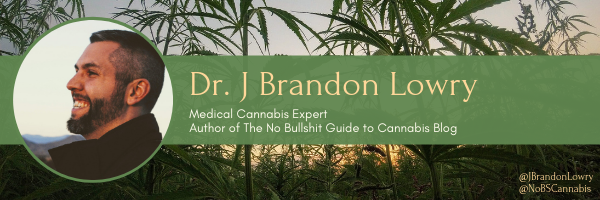Exploring the Debate on Marijuana Expertise: A Critical Look
Written on
Chapter 1: Dissecting the Claim of Non-Expertise
Recently, while delving into topics for my writing, I encountered an opinion piece titled “Marijuana Experts? There Really Is No Such Thing.” This assertion struck me as peculiar, especially coming from Mike Adams, a freelance writer with considerable experience in cannabis journalism. Over the past six years, he has contributed to prominent platforms such as Forbes, Salon, and High Times, focusing on cannabis culture and legalization. If he doesn’t qualify as an expert, then who does?
I find myself aligning with the essence of his argument, which posits that collectively, we lack sufficient understanding of both the beneficial and adverse effects of marijuana use. I fully support this notion; in fact, it's the very reason this publication exists! However, I take issue with his implication that no individual possesses the requisite knowledge to form an informed opinion on the matter.
To substantiate his argument, Adams references unsettling research highlighting the scant education on marijuana provided to medical professionals in the U.S. A 2016 survey revealed that a mere 9% of American medical schools included cannabis in their curriculum. Almost 90% of surveyed doctors expressed feeling ill-equipped to prescribe cannabis, and just over one-third believed they could competently address questions about it. Clearly, this is a scenario that warrants improvement. Yet, Adams follows this observation with a concerning assertion:
"This means that when discussing medical marijuana with your family doctor, chances are everything he or she tells you, good or bad, is just an opinion and not rooted in any sort of science."
I take significant issue with this claim. Medical professionals do not cease their education upon graduation. They continuously engage with new research to stay current in their field. Given the rising demand for medical marijuana, it is unrealistic to presume that physicians are not actively seeking to enhance their knowledge or that they lack the foundational expertise necessary to discuss the subject effectively.
Adams's assertion also implies that all opinions hold equal weight. Even if a physician hasn't pursued additional education on cannabis, any medical advice they provide is grounded in years of rigorous training and practical experience, making it inherently more valuable than advice from a local dispensary employee.
This point is critical in countering Adams's stance. A 2016 survey of dispensary staff indicated that only 20% had any formal medical or scientific training, yet 94% provided recommendations based on customer-reported symptoms. These individuals lack the training to evaluate potential drug interactions or the risks associated with marijuana consumption relative to existing medical conditions, potentially jeopardizing patient safety.
In the introduction to his article, Adams states, “I am no expert on every facet of this plant. Nobody is.” While this may be technically accurate, it misrepresents the nature of expertise. I hold a PhD in Molecular Biology and consider myself an expert in my field, though not in every aspect of it. Likewise, professors, post-docs, and graduate students share specialized knowledge, allowing them to communicate effectively about their specific domains due to a common foundational understanding. The essence of expertise lies in one's ability to internalize and synthesize information based on a well-established body of knowledge.
Is there a need for doctors to receive more comprehensive training regarding the medicinal uses of marijuana? Undoubtedly. Should we pursue further research into these applications? Absolutely. However, the incompleteness of our knowledge does not equate to total ignorance, nor does it imply that no individual possesses or comprehends that knowledge. The key lies in consulting each expert within their respective fields. I wouldn’t ask my physician for advice on vaporizer selection, just as I wouldn’t consult my budtender for assistance with my tendonitis.
You shouldn’t either.
More from the No BS Guide: - Misleading Headlines: CBD Causes Liver Damage - What Happens When Science Journalism Goes Wrong
About the Author

- Brandon Lowry earned his PhD from the Institute of Molecular Biology at the University of Oregon. A digital nomad and freelance writer, he specializes in cannabis, science, health, and travel. He also serves as the assistant editor for Midnight Mosaic Fiction.
Chapter 2: The Impact of Cannabis on Health
To further understand the complexities of cannabis use, we can explore the negative implications it can have on brain health.
This video titled "Weed Is Much Worse For You Than You Think" delves into the effects of marijuana on the brain and offers insights on quitting.
Continuing the discussion, we can also look at the future of cannabis research and genetic profiling.
In the video "Unveiling the Future: The 23 & Me of Weed with Len May," we explore innovative approaches to understanding cannabis through genetic insights.